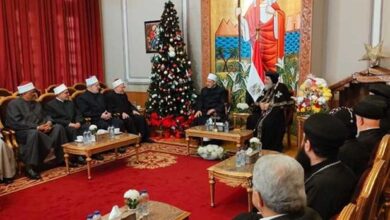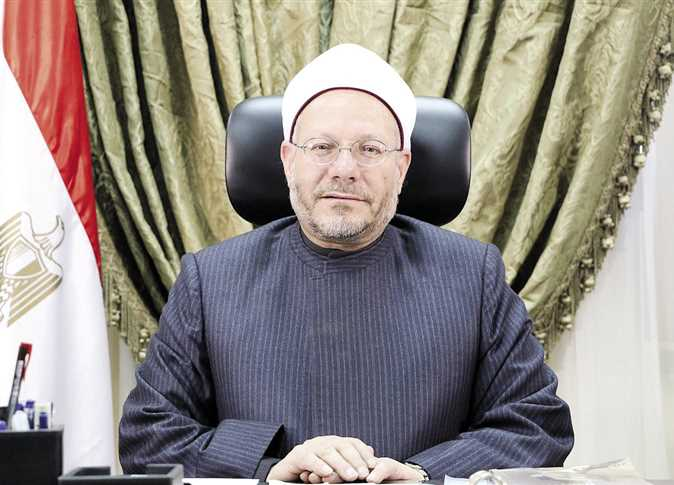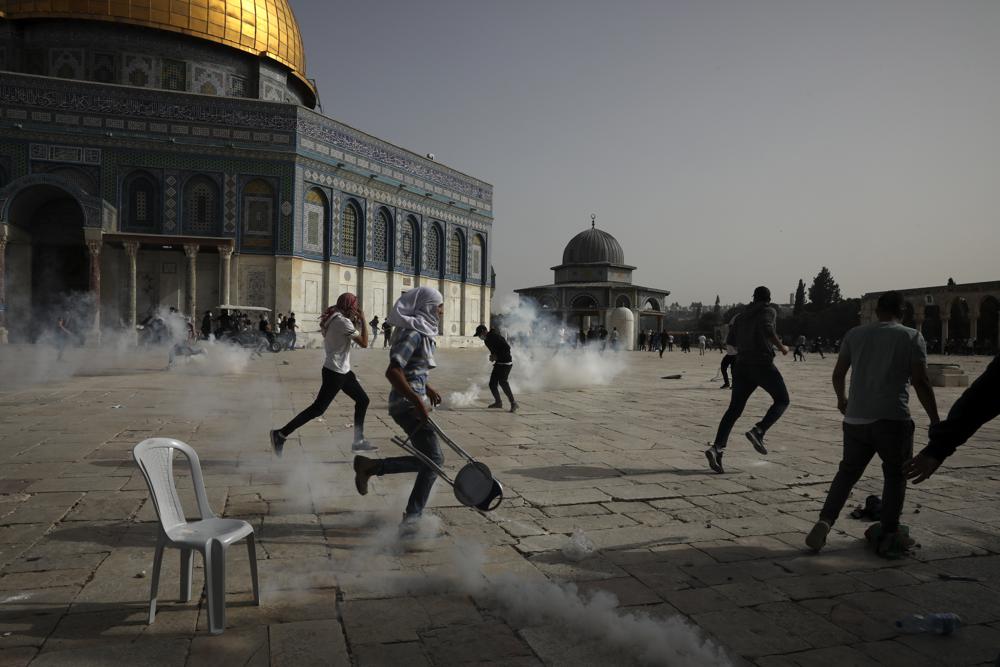Despite ongoing feuds over the identity of the state in post-Mubarak Egypt, both secularists and Islamists have recently agreed on one issue: the necessity of liberating Al-Azhar from government control. Yet, each camp has its own motives for supporting an autonomous clergy.
Islamists view an autonomous Al-Azhar as key to achieving an Islamic renaissance in Egypt. But for non-Islamists, if the religious establishment – long known for its moderate understanding of Islam – is freed, it can regain credibility among the masses and stem the influence of radical groups.
For secularists, the need to contain the growth of radical Islam has become dire in recent months with the resurgence of Salafi groups in the wake of Hosni Mubarak’s ouster. At least three Salafi parties have launched since the revolution began on 25 January. Last month, tens of thousands Salafis alarmed secular activists when they flooded Tahrir Square, the epicenter of the revolution, in a rally that called for implementation of Sharia, Islamic law.
“When intransigent voices dominate, the moderate outlook, for which Al-Azhar has been famous, becomes needed,” Ibrahim al-Essawi, a co-founder of the left-wing Popular Socialist Alliance Party, told Al-Masry Al-Youm.
Essawi’s party is one of several non-Islamist groups that threw their full backing behind Al-Azhar’s independence by signing statements and raising the issue in the media. Even secular presidential hopeful Mohamed ElBaradei, who met with Al-Azhar’s Grand Sheikh Ahmed Al-Tayeb recently, has supported calls for independence.
“If Al-Azhar retrieves its independence, all the people will rally around it,” the former head of the International Atomic Energy Agency told reporters after the meeting. “The different interpretations of Islam that we see today, and those divisions based on religion, should not exist. Al-Azhar should retrieve its role as the beacon of enlightened Islam, not only in Egypt but in the whole Arab world.”
A few days earlier, ElBaradei’s contender Amr Moussa, the former secretary general of the Arab League, paid a visit to Tayeb and made similar comments.
Since the beginning of the twentieth century, Al-Azhar has been the bastion of moderate Islam in the Sunni world. However, its influence waned after the military coup of 1952. Gamal Abdel Nasser clipped the wings of clerics by nationalizing their endowments and giving himself the right to appoint Al-Azhar’s Grand Sheikh. (Before the 1960s, the grand sheikh used to be elected by his fellows.) In the meantime, Nasser used Al-Azhar to bestow legitimacy upon his pan-Arab and socialist policies.
The same pattern was maintained by President Anwar Sadat, who came to power in 1970. Sadat further weakened Al-Azhar by opening the door for radical Islamist groups, which promoted Wahhabi thought. Since then, Al-Azhar has lost ideological influence in the face of the Wahhabi tide.
When Mubarak held the helm of state, Al-Azhar continued to lose influence to fundamentalist groups, which sought to discredit the state-sanctioned religious establishment by arguing that it represented the regime’s interests rather than true Islam. Meanwhile, Wahhabi thought began to permeate Al-Azhar itself.
Pushing for an independent clergy would not necessarily mean creating a bulwark against Salafis. Otherwise, Salafi parties would not have backed the cause.
“Al-Azhar should retrieve its role in achieving the renaissance and the advancement of the nation,” reads the platform of the Salafi Nour Party posted on the group’s official Facebook page. “Regardless of the ruling regime type, Al-Azhar should be independent and act as the conscience of the nation.”
In the same document, the Alexandria-based party has endorsed the demands echoed by thousands of Al-Azhar preachers to reverse all policies inherited from Nasser’s times.
For Mohamed Yosry, Nour Party spokesperson, secularists who back the independence of Al-Azhar hoping to defeat Salafis are contradicting themselves.
“By requiring Al-Azhar to play a particular role or to adopt a particular school of thought, you will be threatening the very independence of Al-Azhar,” said Yosry. “The role of Al-Azhar is not to stand by the side of one political trend against another.”
Yosri’s party is not the only Salafi group that pushes for Al-Azhar’s autonomy. The would-be Asala Party (meaning authenticity) has showed interest in the same cause. Yet, the Asala Party’s expectations from an independent religious establishment are quite different from its non-Islamist counterparts. Speaking last month to Al-Masry Al-Youm, Adel Afify, the party’s founder, made it clear that his group thinks Al-Azhar should be in charge of deciding whether certain policies or practices conform to Islamic Sharia.
“Who would tell the parliament whether a certain matter contradicts Sharia other than the official religious establishment represented in Al-Azhar?” Afify asked rhetorically.
Many secularists expressed vehement opposition to this Salafi proposition, warning that it would pave the way for the creation of a religious state in which clerics rather than elected politicians would have the ultimate say on political matters.
"Salafis are backing the independence of Al-Azhar, hoping they can hijack it and use it as a vehicle to spread their political ideas," said Ammar Ali Hassan, an expert on Islamist movements.
“Some want to control al-Azhar and use it in the political life to produce a certain religious discourse that could serve mainly Salafi trends,” he said.
For Hassan, easing the government's grip over Al-Azhar is a necessity, but it should be accompanied by other reform measures. The religious curricula should be revamped to introduce modern research methods and expose students to different interpretations of Islam, said Hassan. Also, new criteria should be set for the selection of religious scholars.
“The scholar should be acquainted with other cultures and sets, have the experience of communicating with the public, hold high degrees and be known among his students of not being an extremist,” said Hassan.
In the meantime, the role of Al-Azhar in public life should be redefined to avoid any interference from the religious establishment in politics, he added.
“The role of Al-Azhar in public life should be spiritual, moral and educational, and no more than that,” said Hassan. Most secularists would agree with Hassan on restricting Al-Azhar’s duties to the spiritual realm. Yet, Al-Azhar scholars themselves would oppose such an outlook.
In recent months, thousands of young Al-Azhar preachers have launched a campaign to pressure the interim government and the Supreme Council of the Armed Forces to implement changes that would pave the way for the independence of their institution. Many of the movement's leaders believe Al-Azhar should play a large role in public life.
“People should not worry about the impact of other religious currents on Al-Azhar. They should worry more from the impact of secularism,” said Rabie Marzouq, representative of the Coalition of Revered Al-Azhar Pundits, an entity formed shortly after Hosni Mubarak’s ouster.
“Secularists want al-Azhar to be independent for a certain period of time, until it beats other religious groups. But in fact, they do not want it to act as a religious reference point. They want it to be no more than an educational institute,” added Marzouq, who believes Al-Azhar should be entitled to express its views on different political and social matters.
“The grand imam of Al-Azhar should speak and say which policy is right or wrong, and then it is up to the street or the parliament to decide,” said Marzouq.
In the meantime, Marzouq downplayed fears that Salafis might hijack Al-Azhar.
“Al-Azhar has represented moderate Islam, so it is impossible for anyone to come and reverse this historically moderate voice,” he said.




